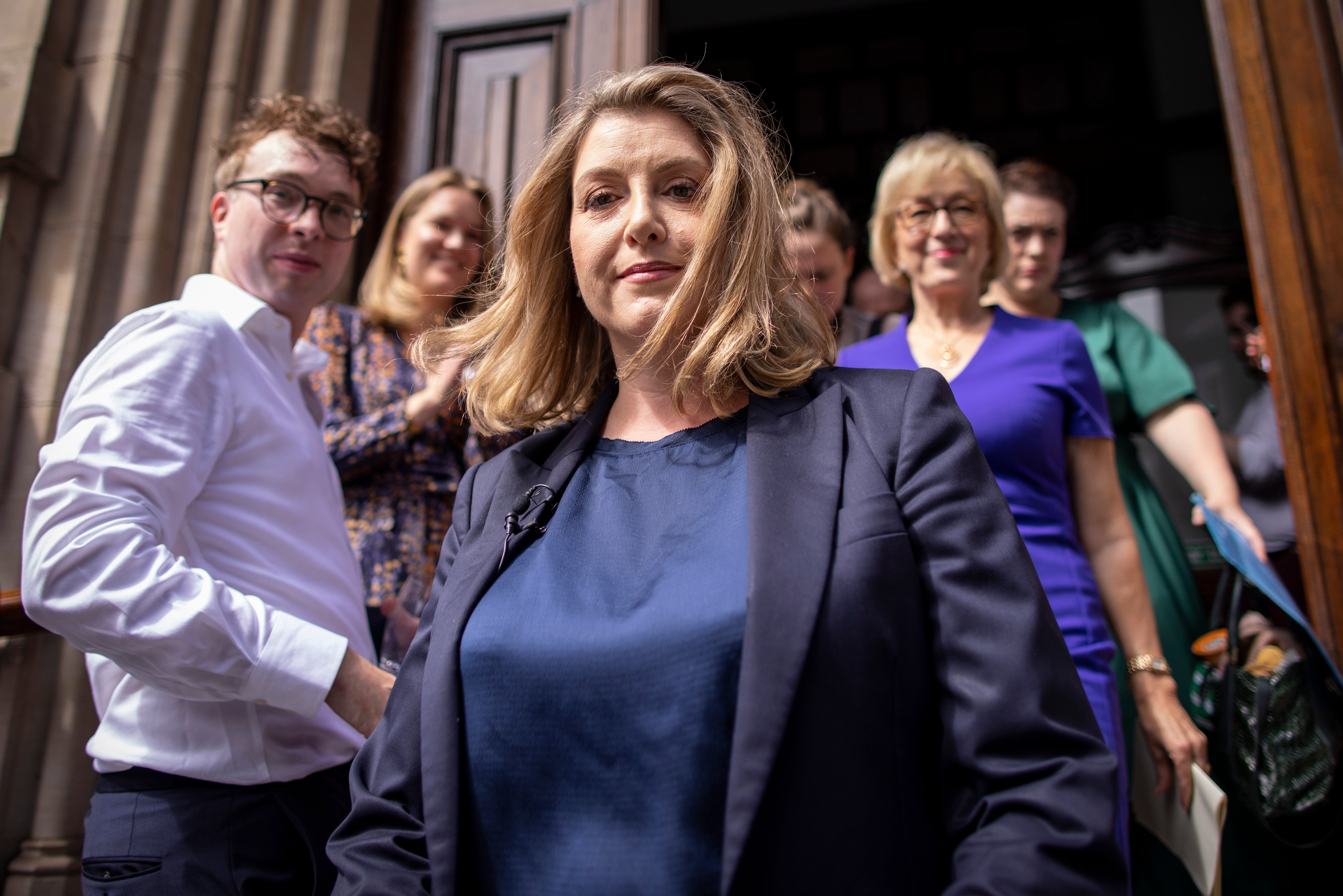Liz Truss and Penny Mordaunt make promises that are too good to be true
Rishi Sunak’s rivals are getting away with incredible tax-and-spend plans, writes John Rentoul


In two sentences in the Conservative Home hustings, Liz Truss spent £54bn a year, confirming her leading role as the most fiscally irresponsible of the candidates. In one sentence she listed the tax cuts to which she is committed: reversing the rise in national insurance contributions, a temporary moratorium on the green levies on energy bills, and not raising corporation tax next year.
That is £27bn of lower revenue from year one of a Truss government. Later in the hustings, she confirmed that she would raise defence spending to 3 per cent of national income. That is £27bn of higher spending, although at her campaign launch on Thursday she said that would be “by the end of the decade”, so in eight years’ time.
Some of these costs are obscured by Rishi Sunak’s tendency to raise taxes and cut them at the same time, so it is worth spelling out quite how spendthrift Truss’s plans are. Sunak put national insurance up by £17bn a year in April this year, but then cut contributions by £6bn a year in July, when he raised the threshold at which employees start to pay. Truss wants to reverse the whole of the rise, including the rise in employers’ contributions, which would cost £11bn a year.
Sunak has also announced a big rise in corporation tax next year, from 19 to 25 per cent, which the Treasury estimates will raise £12bn in its first year. Truss wants to cancel that “hike”. And then she also wants a temporary cut in green levies on energy bills. That is £11bn plus £12bn plus £4bn, a total of £27bn in year one. The temporary nature of the cut in green levies doesn’t make the overall position any more prudent, because the yield from higher corporation tax is expected to rise to £17bn in two years.
Even allowing eight years for the increase in defence spending, these are tax-and-spend promises on the scale Jeremy Corbyn and John McDonnell made. Truss claims to be able to pay for them because she thinks tax receipts will be higher than the Office for Budget Responsibility forecasts, and because she will treat the £360bn of Covid debt as if it were war debt, paid back over a longer period.
These are what Sunak calls “fairy tales”. Yes, revenues have been buoyant recently, but why should a politician desperate to outspend her rivals be better at predicting the tax take over the next few years? As for repaying Covid debt more slowly, how can this be possible when Sunak already planned never to repay it? (The former chancellor’s rule was that debt had to keep falling as a share of national income, but that would be achieved by economic growth – or by inflation eroding the cash value of outstanding debt.)
To keep up to speed with all the latest opinions and comment, sign up to our free weekly Voices Dispatches newsletter by clicking here
What was striking about the hustings was that Sunak and Truss adopted positions that allowed Penny Mordaunt to take the middle way. She too offers unfunded tax cuts, but more modest than Truss’s. Mordaunt promises a temporary cut in VAT on petrol, “paid for” by higher than expected VAT receipts (a device borrowed from Rachel Reeves, the shadow chancellor), and a promise to raise basic and higher income tax thresholds in line with inflation, which would cost £8bn in year one.
The contrast with Truss allowed her to pose as a model of fiscal prudence, even though the principle of borrowing more remains the same.
It may be that there are good economic arguments for borrowing more. The national budget is not like a household’s, and we face the threat of recession. But we have used massive state borrowing twice recently to protect jobs from economic shocks, and interest rates are rising.
If Truss and Mordaunt want to make the Corbyn-McDonnell case for further public borrowing, they should be pressed to make it in every hustings and interview for the rest of the campaign. Otherwise there is a danger that this contest will be won by the candidate who tells the slightly more believable fairy tales.



Join our commenting forum
Join thought-provoking conversations, follow other Independent readers and see their replies
Comments